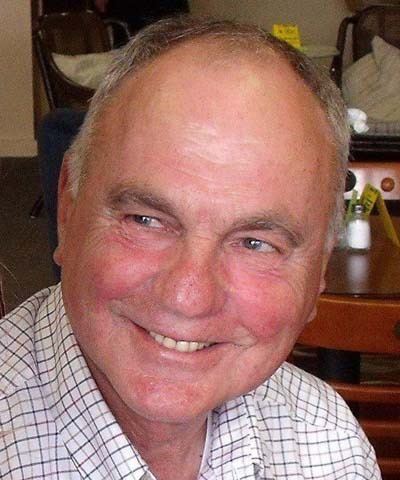By Rita Larom
“Crossing the Atlantic on a square rigger when you’re 17 is quite an experience,” Lopez Islander, Don Langrock, said. The 295 foot sailing ship was owned by the Coast Guard Academy and used in the summertime for practical experience.
With a school teacher father who kept his family in New York during the school year and moved them to Vermont during the summers while he managed a hotel, Langrock’s young life was spent near the water. Being accepted into the Coast Guard Academy was a natural progression.
After his four-year course, Langrock went to sea with search and rescue during the Cuban Missile Crisis.
“Many people were escaping Cuba and there was a heavy embargo where we patrolled,” he said.
Langrock then served on a ship doing weather station patrols in the North Atlantic.
“We also served as a point for positioning aircraft,” he said. “Navigation systems on planes improved so much during that time that by the end of the program, they could probably tell us where we were.”
Langrock earned a Masters Degree in Naval Architecture and Marine Engineering and another in Mechanical Engineering at the Massachusetts Institute of Technology. He spent the rest of his Coast Guard career building or operating ships.
“In San Francisco during Vietnam, we approved designs for modifying merchant vessels to carry military cargo,” Langrock said. “It was not a good place to be then. We wore street clothes to work and changed into uniforms at the office.”
After an assignment in Cleveland, Langrock moved to Seattle to take the chief technical position during construction of a polar ice breaker. He sailed with it as Chief Engineer to the Arctic and Antarctic during its first three years of service.
In the late 1970s, Langrock served on a State Department panel with Japan for marine facilities. He still communicates with a Japanese professor he met during their travels.
Langrock retired after 20 years in the Coast Guard. His second career was in research and development for Mobil Oil. At that time, most drilling in water was at about 1,000 feet with structures built on the sea bottom.
“I was in charge of a group to design floating devices for off-shore oil production,” Langrock said. “From Dallas, I traveled around the Gulf of Mexico. Our Research and Development Engineering Department consulted worldwide so I needed to be prepared to travel with very little notice to Norway, Africa, or anywhere there was a problem. The first seven years I worked for Mobil, I racked up a million miles on American Airlines.”
Langrock bought Lopez property in the mid-80s.
“While living in Dallas, I would come to Lopez and suffer from ‘tree shock.’ I built a vacation home here in the early 90s,” Langrock said. His first marriage ended in 1993.
“After nine years in Dallas I was transferred to Scotland where I was in charge of all ocean drilling projects over 1,500 feet deep. We developed robotics for subsea drilling and laid the groundwork for what is being used in the Gulf today.
My last assignment in Scotland was as Engineering and Construction Manager on a subsea installation using our equipment designs. In North Sea conditions at that time, you could only drill to a reservoir underneath the platform and use limited angles to nearby places. With subsea projects, a well could be drilled and equipment located on the sea floor with pipelines extending to outlying pockets and traveling back to the platform for processing. This allowed for further development. They’re still producing in the North Sea today.”
When Langrock transferred to Scotland he was assigned to Foreign Relations Advisor, Marlene Cheyne Holt, his future wife. “
When I learned she was a widow, I asked her out,” he said. “On Marlene’s first visit to the island, she called it ‘magic.’ I agreed. When something needs to be accomplished, people just do it.”
Langrock retired in 1996 . The couple moved to Lopez and Langrock started his own consulting company for naval architecture and marine engineering. He has worked with ferry systems and shipping companies.
“Volunteer work keeps me busy,” Langrock said. “I’ve served on the Catherine Washburn Memorial Association Board, am active in Lions, church, and work with Hospice and Home Support.” His three sons and eight grandchildren all live in the northwest.
“I’ve had the best of two careers and learned discipline and good study habits in the Coast Guard and at MIT,” Langrock said. “If you are prepared and happen to be in the right spot at the right time, opportunities occur.”



